Meet the Collective & Advisory Council
Global Health 50/50 works to bridge the gap between evidence and organisational and policy change through its unique operating model. Our collective brings together academic researchers, medical doctors, political strategists, communication experts and gender advocates, alongside an esteemed Advisory Council of influential champions and policy makers.
You can read more about our workplace values and policies here.
GH5050 has a small team of full- and part-time staff, supported by a passionate global network of members. To limit the potential for conflicts of interest, collective members affiliated with organisations reviewed by GH5050 are not engaged in reviewing or coding organisations that they work for or advise.
Our Secretariat
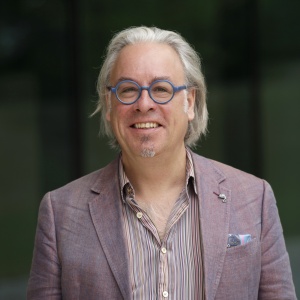
Prof. Kent Buse
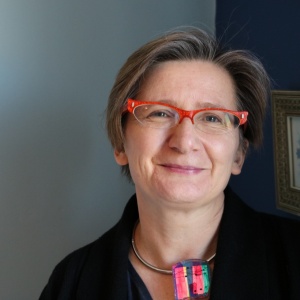
Prof. Sarah Hawkes
Sarah Hawkes is a medical doctor with a degree in sociology and a PhD in epidemiology. She is Director of the Centre for Gender and Global Health and Professor of Global Public Health at University College London where she leads a research theme analyzing the use of evidence in policy processes, particularly in relation to gender and health, and sexual health. She has lived and worked for much of the past 20 years in Asia, where she has gathered evidence, built capacity and helped develop policy for programmes focusing on gender, sexual health and human rights. She works closely with national governments, research organizations, WHO and UNFPA in Asia and the Middle East.
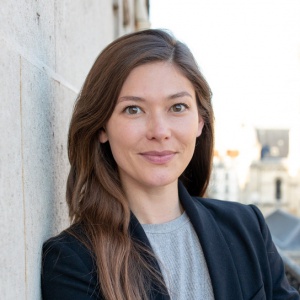
Sonja Tanaka, MPH
Sonja Tanaka is an expert in global health policy and strategy. Her work focuses on articulating organizational policy positions, strategies and engagement in global governance processes. She played a key role in the development of UNAIDS global strategies, UNAIDS contributions to the 2011 and 2016 UN General Assembly Political Declarations on AIDS and its positions in Agenda 2030. Sonja has extensive experience in delivering coherent, high-level products derived through complex, multistakeholder processes. She holds a Masters in Public Health and pursues creative solutions to communications in global health.
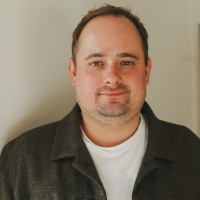
Charlie Pelter
With over 15 years of experience in communications leadership, particularly in the charity sector, Charlie brings a wealth of knowledge and expertise to this role. His background in spearheading communication strategies for initiatives such as the Bill and Melinda Gates Foundation's global END7 campaign, as well as his tenure at Canal & River Trust, Battersea Cats and Dogs Home, The Last Straw Campaign, Meat Free Mondays, and Hospitality in Action, has equipped him with a diverse skill set and a proven track record in driving engagement, advocacy, and change across various charitable causes.
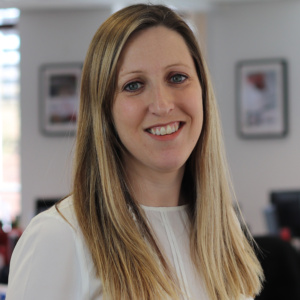
Sarah Lee
Sarah started her career in Public Health after completing her first degree in English and Philosophy. Sarah worked in Public Health in the West Midlands for six years, obtaining a Masters in Public Health and specialising in Public Health and Sustainable Development. She went on to work for The Minister for Care Services in the Department of Health in Whitehall as one of his Private Secretaries, leading on his portfolio areas for carers, older people, dementia, end of life care, child and adolescent mental health and protection of vulnerable adults. Over two years, she worked for two different Ministers in the transition between Government administrations. Sarah pivoted in her career and became Business Manager at a busy Marketing Agency and then Head of Operations at a not-for-profit organisation funded by The LEGO Foundation. As Head of Operations at Global Health 50/50, Sarah has oversight and management across the finance, HR and operational functions.

Lynsey Robinson, PhD
Lynsey Robinson recently completed her PhD at UCL's Faculty of Education and Society, where her research explored gender, religion, and regional dynamics in the Nigerian primary education system, alongside the history of private and non-state sector engagements. She holds an MSc in Research for International Development from SOAS and an MA in Education, Gender, and International Development from UCL. Since 2022, Lynsey has been the Programme Administrator for the Lancet Commission on Gender and Global Health (LCGGH). She has also worked as a Postgraduate Teaching Assistant at UCL and Birkbeck, University of London. Her research consultancy experience includes work with ActionAid and Plan International, and she previously coordinated the Equalities in Public Private Partnerships (EQUIPPPS) network.
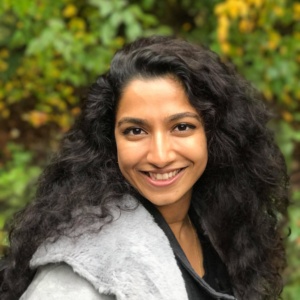
Govindi Deerasinghe
Govindi is a dedicated legal and human rights advocate with extensive experience in the law and justice sector, particularly in the Global South. Trained as a barrister, she holds an LLM in Public International Law from Queen Mary University of London and an LLB in Law from University College London. Govindi’s career spans diverse regions, including East and Southeast Asia, Europe, and Latin America, where she has leveraged her multilingual skills and global perspective to lead advocacy campaigns, educational initiatives, and gender equality projects. Her work emphasises transitional justice, comparative law, and the reform of legal and political institutions to better represent marginalised groups. She has authored significant reports on women’s and children’s rights and remains a passionate advocate for minority rights and social justice.
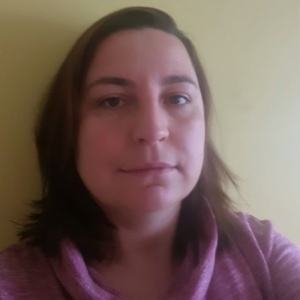
Justyna Czarniecka, LLM
Around 17 years ago, Justyna moved to England from her home country, Poland. She holds a master’s in law from UKSW in Poland and has finished an AAT Level 4 Diploma in Professional Accounting. Previously, Justyna worked as an account assistant for an accountancy practice for several years where she gained experience in bookkeeping, payroll, and accounting. She has been an accountant for about 15 years and continues to enjoy it.
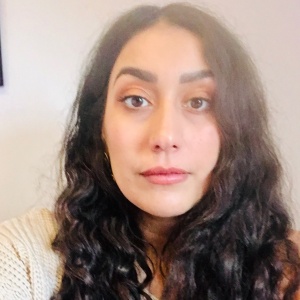
Imogen Bakelmun, MA
Imogen Bakelmun is an experienced curator and public engagement manager, currently working as the curator of GH5050’s This is Gender competition and collection. Her work focuses on community engagement, participatory creative projects, and issues surrounding reflective representation and critical visual cultures with a particular interest in gender, racialisation and migration. She holds an MA in Visual Cultures from Goldsmiths, University of London, and a BA in English Literature from King’s College London.
Our Research Consultants
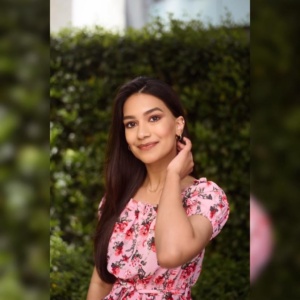
Unsia Hussain, MSc
Unsia Hussain is a researcher and monitoring & evaluation (M&E) specialist in the charity sector, with experience working for organizations in both the UK and Canada. She focuses on developing systems and strategies to effectively demonstrate and communicate impact, particularly for marginalized groups. Her research interests include social norms and reproductive rights in South Asia.
Unsia holds an MSc in Development Studies from the London School of Economics and a BA in Philosophy, Politics, and Economics from the University of Reading.
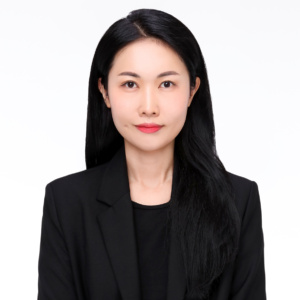
Jiwon Lee, MSc
Jiwon Lee is a researcher who began her career with a deep interest in advancing health equity in low- and middle-income countries. She has lived and worked in Asia and West Africa, contributing to Official Development Assistance (ODA) projects focused primarily on health equity, women's empowerment, and peacebuilding. Recently, she relocated to London to pursue an MSc in Public Health for Development at the London School of Hygiene and Tropical Medicine (LSHTM). Her research interests include health equity, women's empowerment, health systems, and policy development.
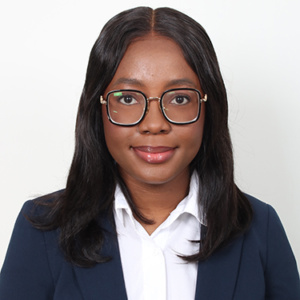
Adeyeye Adebisi Anthonia, MBBS, MSc
Adebisi is a dedicated medical professional and researcher focused on advancing global health and improving access to care for marginalised populations, particularly in resource-limited settings. Currently pursuing an MSc in Global Health and Development at University College London, she is the recipient of the prestigious African Graduate Scholarship. With a wealth of experience spanning clinical research, public health interventions, and the social determinants of health in humanitarian contexts, Adebisi has contributed to meaningful projects in both academic and non-profit sectors. As a former leader in a Nigerian student organisation dedicated to sexual and reproductive health and rights, she led seminars and training sessions addressing sexual abuse, domestic violence, teenage pregnancies, and suicide prevention. Her passion for translating research into impactful policies and building sustainable healthcare systems in underserved areas continues to shape her work. Adebisi remains committed to driving positive change through research, advocacy, and policy development.
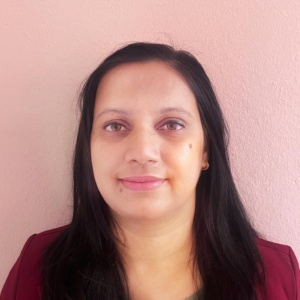
Sarmila Dhakal, MPH
Sarmila Dhakal is a Research Officer at the Center for Research on Environment, Health and Population Activities (CREHPA), with extensive experience in sexual and reproductive health and rights (SRHR) and public health research in Nepal. Holding a Master’s degree in Public Health from the University of Southern Denmark, Sarmila has over six years of experience in public health research, focusing on translating research evidence into actionable policy recommendations to inform health policy and programs. She has worked with various national and international organisations, including local, provincial and federal governments in Nepal. Her primary research interests include sexual and reproductive health and rights, child marriage, gender issues, mental health and environmental health. Currently, she is involved in an interventional study on “Menstrual Health and Justice”, which seeks to establish a universal framework for menstrual justice and design an intervention to improve menstrual justice.
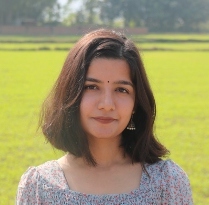
Silviya Chaulagain, MSc
Silviya Chaulagain is a Research Officer at the Centre for Research on Environment, Health and Population Studies (CREHPA). She has five years of experience working with NGOs and a UN agency in research, program development, and communication. Her current research, in collaboration with the University of Bath, UK aims to develop a universal framework for menstrual justice and assess the feasibility of interventions to address menstrual pain and injustice among adolescent girls in Nepal. She is interested in research areas related to public health policy, sexual and reproductive health, antibiotic resistance, climate change and environment related issues.
Silviya holds an MSc in Public Health from the University of Southampton, awarded through the UK government’s Chevening Scholarship. She is also a former fellow of MCW Global's Young Leaders Fellowship Program.
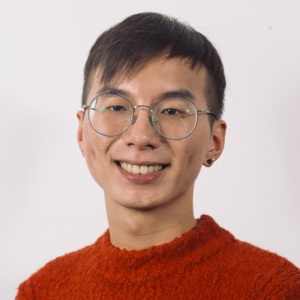
Aaron Koay, MPharm, MSc
Initially trained as a pharmacist, Aaron Koay (he/him) is currently a PhD researcher at the UCL Institute for Global Health under the supervision of Prof Sarah Hawkes. Funded by the UCL-Birkbeck MRC DTP (Health of the Public) and UCL International Scholar Award for Doctoral Training, Aaron's interdisciplinary PhD research explores the operationalisation of intersectionality in global health governance to achieve health equity. Aaron – who hails from Penang – spent eight fond years in Dublin and acquired a BSc in Pharmacy (TCD), MPharm (TCD) and MSc in Comparative Social Change (TCD and UCD). Aaron also served as an inaugural Co-chair (2021-22) of the TCD Faculty of Health Sciences Equality, Diversity and Inclusion Group. Notably, Aaron has received numerous prestigious awards, including the UCD Patrick Clancy Award (2022), Trinity Gold Medal (2019), Alexion Senior Sophister Pharmacy Prize (2019), Laidlaw Scholarship (2018) and Trinity Foundation Scholarship (2017). You can find Aaron doing a headstand on his yoga mat when he is not at work! Follow Aaron on Twitter @aaroncckoay.
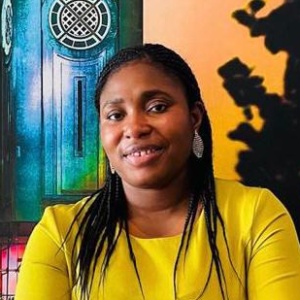
Victoria Olarewaju, MSc
Victoria Olarewaju is a Public health/ Epidemiology expert. Her work focuses on maternal and child health, social determinants of health, gender inequality and vaccine hesitancy. She holds a Masters in Epidemiology from University of Basel, Switzerland. She has collaborated with diverse research groups and Non-governmental organizations in Switzerland, Nigeria and the Democratic Republic of Congo working on Malaria and HIV in Pregnancy. She is passionate about driving the translation of research findings to actual policy implementation through engagement with key organizational stakeholders. She supports the research group in the Gender, Society and Health unit at the Swiss Tropical and Public Health Institute (Swisstph), Switzerland working on Vaccine Hesitancy and is currently a researcher at GH5050 with a focus on gender equality in global health and leadership.
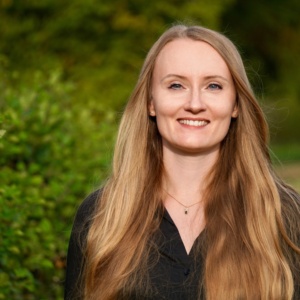
Lydia Sloof
Lydia is a passionate young researcher with an interdisciplinary focus on cultural studies, gender studies, decolonisation, and political philosophy. Her previous work has primarily addressed the social determinants of health, aligning closely with her broader academic and professional interests. A central aspect of her work is translating theoretical insights into practical applications within educational frameworks and societal systems—a focus during her Master’s studies. Throughout her academic journey, Lydia has consistently applied her knowledge to real-world challenges. As a key member of the student council's office for equality and diversity, she organized events to raise awareness about inequality, provided direct support and guidance to individuals impacted by these challenges, and actively advocated for inclusive policies at her university. Collaborating with various regional entities, she amplified her advocacy efforts beyond campus to create tangible change. She demonstrated leadership in community initiatives by leading youth programs during the COVID-19 pandemic, conducting workshops on diversity, gender equity, and racism, and volunteering globally with UNFPA Asia-Pacific on gender equity and disability inclusion projects. Holding a Master of Arts in Social Sciences with a concentration in Participation and Education Research, and a Bachelor of Arts in Liberal Arts and Sciences from University College Maastricht, she aims to bridge the gap between academia and policy-making to ensure that academic research has a meaningful impact on policies and practices that promote social justice and equity.
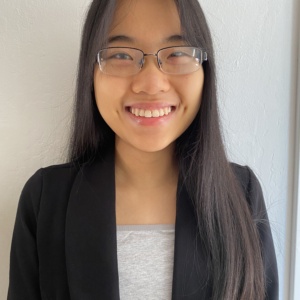
Huong Le
Huong Le is an MSc Global Health and Development candidate at University College London. She is interested in integrating community approaches to address mental health problems among marginalized youths, exploring the social determinants of health, and harnessing community resources for the prevention and treatment of these problems. She is currently working on She holds a BA in Neuroscience and Global Health and Health Policy from Harvard University.
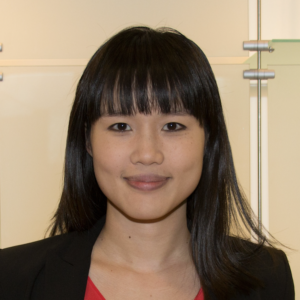
Angela Y. Chang, ScD
Angela Y. Chang is an Assistant Professor at the Danish Institute for Advanced Study (DIAS) and the Department of Clinical Research at University of Southern Denmark. Her research interests lie in the areas of global health, health economics, and health metrics. Recent works include measuring population aging and capturing the monetary value of changes in health to estimate the economic burden of disease. She has published extensively in peer-reviewed journals and worked with international global health agencies. Angela received her master’s degree from Johns Hopkins University, doctoral degree from Harvard University, and postdoctoral training at the Institute for Health Metrics and Evaluation (IHME) at the University of Washington. She grew up in Taiwan and Japan, and is currently based in Copenhagen. When she is not at work, you will find her at local playgrounds pushing her daughters on swings (for an unreasonable length of time).
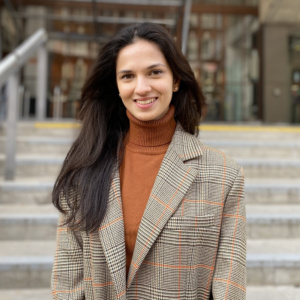
Manasi Hansoge, MSc
Having completed her MSc in Public Health from the London School of Hygiene and Tropical Medicine (LSHTM), Manasi Hansoge (She/Her) is a Public Health Intelligence Analyst at the London Borough of Camden. She is interested in exploring the gendered impacts of climate change on health and is always seeking opportunities to work in this space. Previously, she worked on the Sex, Gender, COVID-19 data tracker (a project co-produced by GH5050, the International Center for Research on Women, and the African Population Health Research Center), and volunteered at the Wellbeing of Women charity. Having lived in India, the United Arab Emirates, and the UK, Manasi constantly seeks to learn from diverse experiences and cultures, and loves a spontaneous trip!
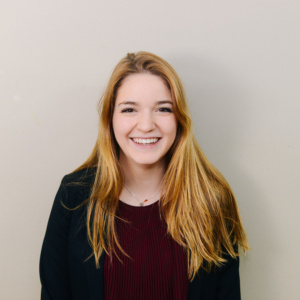
Alma Ionescu
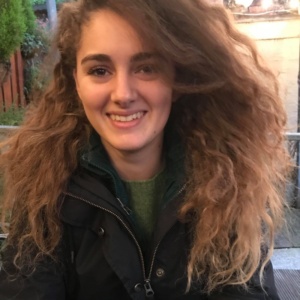
Rebecca Langella
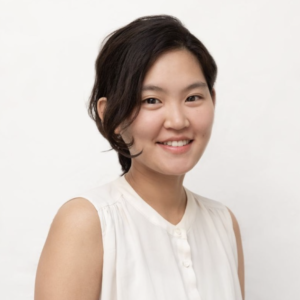
Dahye Yim
Dahye is an activist and researcher based in London and Berlin. Her research interests are gender/social norms, gender and global health, intersectionality, health inequality, SRH, Gender-based Violence and decolonisation. She engaged deeply with the migrant and refugee community while living in Berlin as an activist, hosting events and workshops with women and adolescents from the community. She holds a Master’s Degree in Development Cooperation. She has been engaged in research projects promoting adolescent girls’ SRH and Gender-based Violence in Uganda, South Korea, and Cambodia in recent years. Currently, Dahye is a PhD candidate at the Department of Global Health and Development in the Faculty of Public Health and Policy at LSHTM. Her project aims to explore how gender norms affect access to information and services related to Sexual Reproductive Health among South Korean adolescent girls and unmarried women.
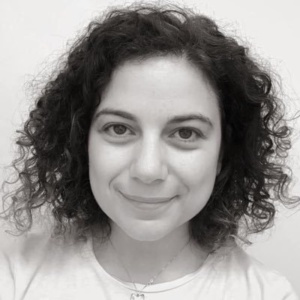
Virginia Zarulli, PhD
Virginia Zarulli is Associate Professor of Demography at the Interdisciplinary Centre on Population Dynamics of the University of Southern Denmark. Her primary research interests are gender differences in survival, health and survival dynamics at old ages and long terms trends in health and mortality. She publishes in major international journals such as PNAS and Population Health Metrics. Her work has been reported on important news outlet such as BBC, The Guardian, The Times, the New York Times.Virginia holds a PhD in Demography from La Sapienza University of Rome, during which she spent long research stays at major demographic research institutes such as Max Planck Institute for Demographic Research (Rostock, Germany) and Institut national d'études démographiques (Paris). She defines herself as a demographer, interested in population dynamics, arts and crafts (much to her three kids’ delight).
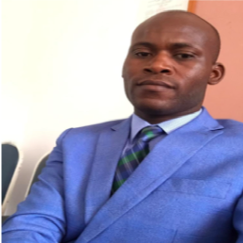
David Zezai, MSc
David is a research consultant with vast experience in health research, statistics, and data management. He is an advocate for youth participation in the implementation of Sustainable Development Goals in Zimbabwe. David works closely with government ministries, united nation agencies, research organisations, and civil society organisations in driving sustainable development agenda forward. He obtained his Master’s in Biostatistics and Epidemiology from the Midlands State University, Zimbabwe, with a concentration in infectious disease epidemiology. David is currently working with Global Health 50/50 as a researcher focusing on gender equality in global health leadership.
Former collective members
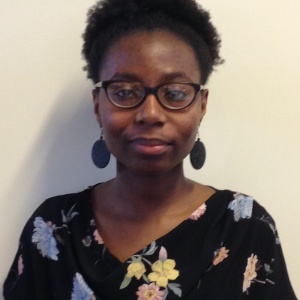
Clara Affun-Adegbulu, MSc
https://www.linkedin.com/in/clara-affun-adegbulu-18a356138/
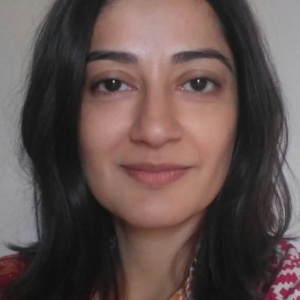
Wafa Aftab, MPH
Wafa Aftab is a faculty member in the Department of Community Health Sciences, Aga Khan University, Pakistan. Her research focuses on health policy and governance in a number of areas including policies addressing dietary risk factors for non-communicable diseases; structural influences and potential policy responses to reduce risk of HIV/AIDS among migrant workers; regulatory approaches for reducing anti-microbial resistance; governance and implementation modalities for health- and health-related sustainable development goals; and governance approaches to public-private partnerships to improve primary health care. Dr Aftab also teaches Health Policy Formulation and Analysis and Public Health Law and Ethics at the Aga Khan University. She is a medical doctor with training in internal medicine. She did her Master’s in Public Health from the George Washington University, Washington DC, with a concentration in Health Policy where she was a Fulbright scholar.
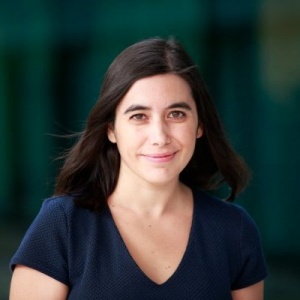
Claudia Ahumada, MA
https://www.linkedin.com/in/claudia-ahumada-17b26a133/
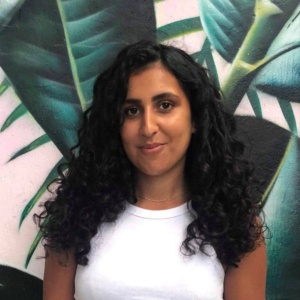
Fiona Bakelmun, BA
Fiona is a recent graduate from the University of Bristol, where she received a First Class Honours in Philosophy and Politics. Her research interests are primarily focused around the decolonisation of development and global health, critical race theory, and intersectional feminism. Fiona is also part of the AIR UK Collective, an anti-racist activist group which campaigns against institutional racism in the UK.

Alex Bamford-Blake
Alex is an executive assistant, project administrator, and was the administration assistant at Global Health 50/50. They have extensive experience in social housing, the not-for-profit sector, and higher education. They have spent the last eighteen months as an NHS frontline worker strategizing COVID testing for the elderly and vulnerable in Surrey and Sussex. They also have a diploma in holistic massage and run a practice that focuses on the needs of queer and non-binary folx in Brighton.
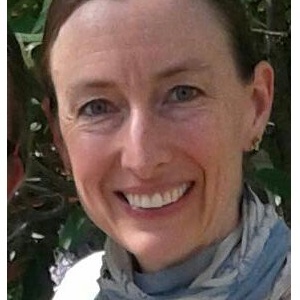
Emily Blitz, MA, DES
Emily T. Blitz is a conference director with twenty years of experience in public relations, multicultural team leadership and stakeholder engagement. She has intimate knowledge of all programmatic and logistical aspects involved with implementing conferences and events for 25 to 25,000 participants. At home in an international environment, her specialties include project management, event communications including social media, presentation skills, protocol, VIP and IPP handling, committee governance, programme development, and stakeholder and donor support. Emily is passionate about health and development issues, particularly HIV, vaccines, sustainable agriculture, LGBTI issues, women's rights, safe motherhood and children's health.
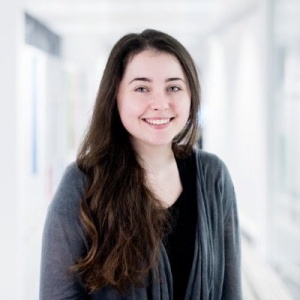
Charlotte Brown
Charlotte is an incoming PhD student at the London School of Economics and Political Science and a graduate of the University of Cambridge. She has spent three years working on issues relating to global health and development and has field experience in both Uganda and India. She leads communications for Global Health 50/50.
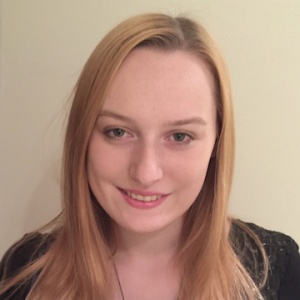
Chloe Byers, MSc
https://www.linkedin.com/in/chloe-byers-809715124/
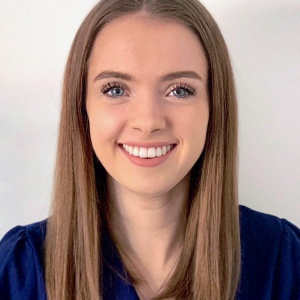
Bea Coates, BA
Bea’s research interests in the social determinants of health, particularly in gender, derive from her academic and professional background in global health and development. At Chatham House’s Centre for Universal Health, she worked on projects of health security, health system strengthening, and One Health, in addition to the formation of the Centre’s Gender, Equality, Diversity and Inclusion Strategy. Bea holds a BA in International Development with First Class Honours from King’s College London and is pursuing further studies in development, analysing global health issues through an intersectional lens.
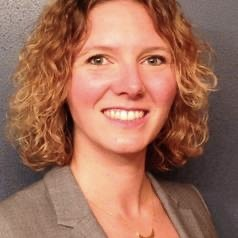
Kate Dovel, PhD
Dr. Dovel is a behavioral scientist and faculty in the Division of Infectious Diseases in the David Geffen School of Medicine at UCLA. Her research focuses on access to HIV services for men in Sub-Saharan Africa, where she lived for 8 years. Her work uses mixed methods to understand the gendered structure of HIV services in the region. She is an expert in implementation studies having been PI of multiple HIV self-testing trials in Malawi, and has a Forgarty K01 award alongside a large grant from the Bill and Melinda Gates Foundation to test innovative treatment strategies for HIV-positive men in Malawi. Dr. Dovel is regularly involved in global HIV policy development and has helped lead the development of HIV self-testing guidelines in Malawi.
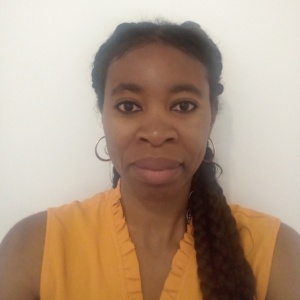
Lawrence Eleh, PhD
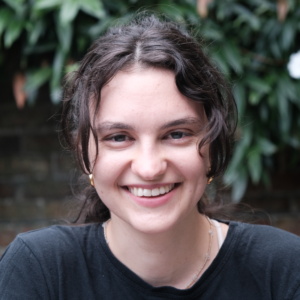
Mireille Evagora-Campbell, MA
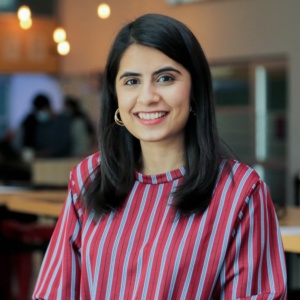
Fizza Fatima, BSc
Fizza is a final year student at Habib University pursuing BSc (Hons) in Social Development & Policy with a minor in Comparative Literature. Fizza's research interests are primarily focused around intersectional gender inequality, environmental degradation, and post-colonialism. Previously, Fizza lead the UNESCO (YAR) youth-led research investigating the gendered impact of working from home during Covid-19 in Pakistan.
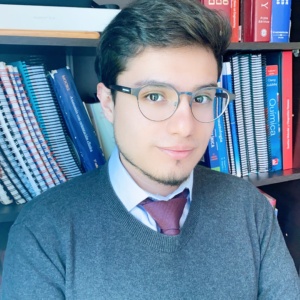
Erick Freire
Erick Freire is an Ecuadorian medical student from Universidad San Francisco de Quito with a special interest in research regarding the fields of global health, science, genetics, and clinical medicine. He is qualified in digital programs, communicative competencies, and virtual work. Erick has five years of medical knowledge that includes experience in clinical work, social centers, and active participation in research in his country and internationally. He has the honor of being the founder and leading head of the advocacy committee for the Gender Equity Initiative in Global Surgery in Ecuador. His more recent investigation was presented as a scientific poster by him during the New England Science Symposium by Harvard University. Current projects include work on two systematic reviews, a literature review, a medical hypothesis, and a case report.

Ilaria Galizia, MD
Ilaria completed a degree in Medicine and Surgery and specialised in General Adult Psychiatry. She also obtained a Master’s degree in Gender Studies and Politics, writing a dissertation about the impact of gender as a risk factor for depression. She worked as a visiting researcher at the Psychological Medicine Department of King’s College London, collaborating with Cochrane Collaboration. As a clinician, she gained experience working at Mental Health Services in Italy. During her clinical activity, she always keeps a gender and intersectional approach. She has a very keen interest in investigating the impact of gender on mental health, and is currently working on the GH5050 journal review.
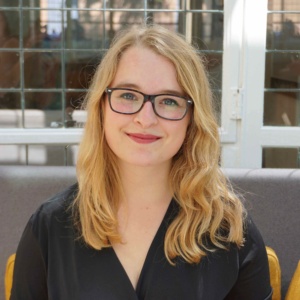
Sophie Gepp, MPH
Sophie is studying medicine at Charité University in Berlin and holds a Master of Public Health from the London School of Hygiene & Tropical Medicine. She is the current Youth Observer to the United Nations Commission on the Status of Women by the German United Nations Association. Sophie has a strong interest in the topics of global health, gender and climate change and works with various organisations at intersections of these.
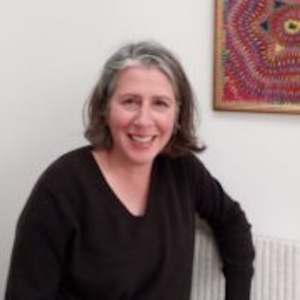
Jasmine Gideon, PhD
Jasmine Gideon is a multi-disciplinary social scientist with a MSc and PhD in Development Studies and is a Reader in Gender, Health and International Development at Birkbeck. Using a ‘gender lens’ her research work critiques mainstream analyses of the health sector which fail to take gender relations into account and has particularly focused on two key areas of work: the gendered implications of contemporary trends in privatisation of healthcare as well as the intersections of forced mobility and health. She has lived and worked in different parts of Latin America and the region remains the main focus of her academic work. She has worked with a range of organisations including PAHO, UN Women, Plan International as well as the UK Women’s Budget Group.
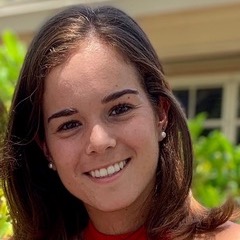
Ysabel Gonzalez Rico

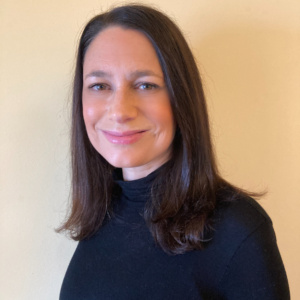
Sophie Hampton, PhD
Sophie is an administrator, project manager, writer and editor and is the Head of Operations for Global Health 50/50. She has a wealth of management experience in the charity and corporate sectors and has also provided extensive support as a freelance writer, editor and researcher to universities, research institutes, art galleries and museums. She holds a PhD in Creative and Critical Writing from the University of East Anglia and her research interests lie at the intersection of literature and cultural geography; her thesis focussed on gender and the social production of urban space.
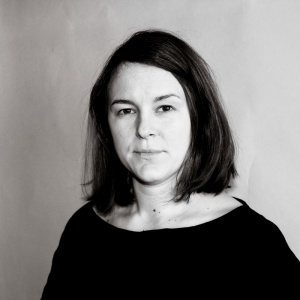
Mikaela Hildebrand, MSc
Mikaela is a strategist, organizer and HIV/SRHR policy specialist with over ten years experience in developing global partnerships, such as ‘All In to end adolescent AIDS’ and ‘ACT2015’ as well as corporate strategies to influence policy process, including Agenda 2030. She has coordinated large scale qualitative and epidemiological research projects in Southern Africa, as well as managed communications and social media for advocacy, community building and accountability. As an advocate, she has worked to reform Swedish harm-reduction policy, by among other things co-editing the book Dogmer som Dödar/Deadly Dogma (2017), as well as to strengthen Sweden’s global health commitments. She has worked for the UN, civil society and government, with a 360 understanding of different actors and positions. Mikaela is currently an advisor at Sida’s regional SRHR team at the Swedish Embassy in Zambia. She holds an MSc in human rights from Gothenburg University.
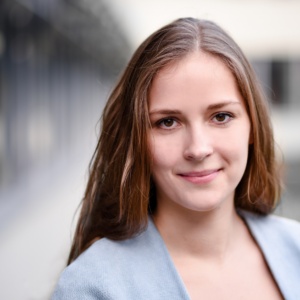
Lara Hollmann, MSc
Lara is a Research Analyst at Chatham House where she works on health security issues with a focus on threats that arise at the human-animal-environment interface (One Health). Previously, she worked on humanitarian and global health policy issues at the European Commission and volunteered at Projekt Sex, a student-led sexual health organization. She holds an MSc in Global Health from the University of Copenhagen, with time spent at Kilimanjaro Christian Medical College in Moshi, and a BSc in Development Studies with a major in Human Geography from Lund University.
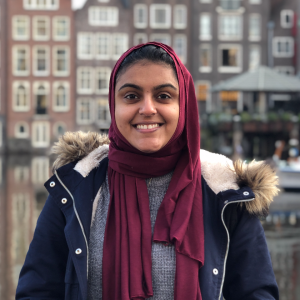
Fatima Irfan
Fatima is a rising senior at Wellesley College studying data science and cognitive neuroscience. She is interested in advocating for health equity and is currently contributing to the COVID-19 sex-disaggregated data tracker.
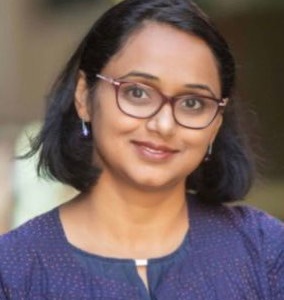
Jagnoor Jagnoor
Jagnoor is Senior Research Fellow, with a background in injury epidemiology. She has a conjoint appointment as Senior Lecturer, Faculty of Medicine, UNSW and an honorary Senior Lecturer appointment, School of Public Health University of Sydney, and The John Walsh Centre for Rehabilitation Research. Jagnoor’ s research interests are exploring the impact of injuries, assessing issues of equity and vulnerability in the distribution of the burden of injuries, evaluating potential interventions to reduce the burden of injuries in Australia, Africa and Asia and contributing to data for decision making in preventing injuries and improving recovery post-injury. Her current research spans a broad range, including injury prevention, rehabilitation, health-related quality of life, economic impact and alternate systems of insurance with respect to injury, whiplash, and mild traumatic brain injury. She is passionate about creating new knowledge to best address the injury burden in low middle-income populations with competing for health needs. She is engaged in several projects in LMIC working on injury surveillance systems, road injuries, burns, falls and drowning.
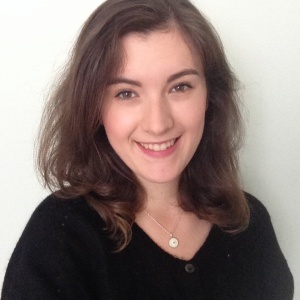
Mairi Jeffery, MSc
Mairi obtained an MSc in Global Health and Development at UCL in 2017, writing her dissertation on gender differences in the prevalence of Alzheimer’s disease, and whether gender inequality could play a role. She completed her undergraduate degree in Sociology with social policy in 2015, having studied research methods and international perspectives on gender. She recently finished a placement with the health team at the Commonwealth Secretariat, and before that she worked as an independent consultant for the Global Health and Development Group at Imperial College, to help in the creation of an online Toolkit for information on Health Technology Assessment.

Ekatha Ann John, MA
Ekatha Ann John is an independent journalist and researcher based in Toronto, Canada. She is a regional co-ordinator for Migration Health South Asia (MiHSA) Network and currently co-leads a project to identify research priorities and set the agenda for migration, health and rights in South Asia. She has more than a decade's experience as a journalist in South Asia, covering issues related to gender, health, migration, slavery and trafficking. Her work has been carried in leading publications like The Times of India, Hindustan Times, The Economic Times, The Indian Express and Mint. A Chevening scholar, she completed her Master's in Migration, Culture and Global Health Policy from Queen Mary University of London. Her research interest is in examining portrayals of migrants and refugees by mainstream media and variation in representation based on their identities and social positions. She has also researched on the prevalence of gender inequity in global health leadership.
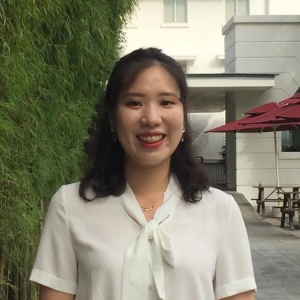
Dahye Kim
Dahye Kim is a PhD Candidate at the National University of Singapore, lee kuan yew public policy school. Her research focuses on health and gender, and her work at Global Health 50/50 focuses on contributing to the sex-disaggregated COVID-19 data tracker.
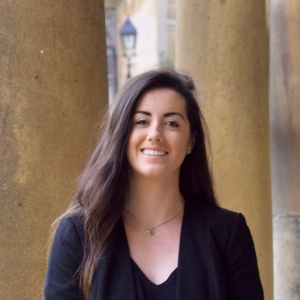
Ruth Lawlor
Ruth Lawlor is a PhD candidate in history at Trinity College, University of Cambridge. Her research focuses on conflict-related sexual violence and is supported by the Arts and Humanities Research Council, Cambridge Trust, and the Robert Gardiner Memorial Fund. She is an editor at U.S. Studies Online, the postgraduate journal of the British Association for American Studies.
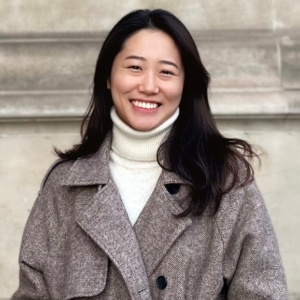
Suna Lee, MSc
Suna, also known as Sun, holds an MSc in Global Health and Development from University College London, a BA in International Relations and Politics from the University of Sheffield, and studied BSc in Cyber Security from Paichai University in Korea. She is passionate about analysing health policy, particularly scrutinising the multifarious connections between power and politics in health. Her research has been focused on vaccine equity, digitalisation of health, and critical appraisal of the UK’s COVID-19 health policy response. Prior to this role, she was involved in two projects at UCL; understanding the intersectional impacts of a socio-political economy of global mental health at the Institute for Global Health, and a strategic paper development utilising the digital big data in healthcare to benefit the most vulnerable members of society at the Institute of Healthcare Engineering. She hopes to contribute to research that has a positive impact, amplifying the voices of those most underrepresented in society.
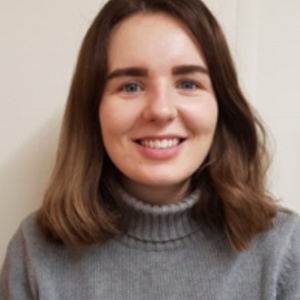
Rebekah Merriman, MD
Rebekah is currently a junior doctor working in central London, after having recently graduated from King’s College London. At university, along side her medical degree, she obtained a BSc in Medical Ethics and Law, and wrote a dissertation which considered gendered public health messages in national screening programmes. She was a widening participation ambassador, and was also part of a team that implemented an anti-sexual harassment campaign on campus. She has a long standing interest in gender equality and gender as a social determinant of health and hopes to pursue this further alongside her clinical career.
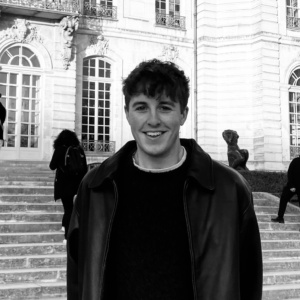
Ben Millard
Ben is a third-year undergraduate student pursuing a BA in Modern Languages, Literature and Management at the University of Cambridge. Throughout his studies, he has explored intersectional race and gender theory and has spent time working with the SolidariTee campaign. Currently undertaking a year abroad, Ben has gained experience working in the communications industry, which he combines with a key interest in the visual arts and design.
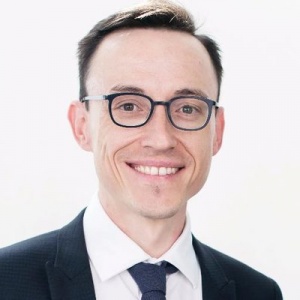
Edward Mishaud, MSc
https://www.linkedin.com/in/emishaud/
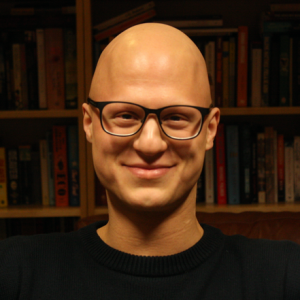
Elias Nosrati
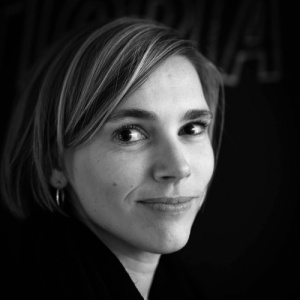
Kristine Onarheim, PhD
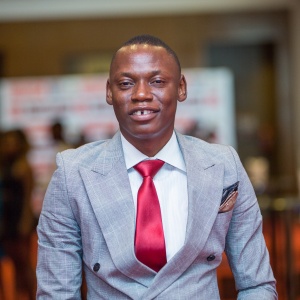
Emmanuel Otache
Emmanuel Otache is a brand communication consultant who has worked with UNICEF, UNFPA, UNHCR and key development agencies in Nigeria with key involvement in campaigns such as End Female Genital Mutilation, Gender Analysis of the Capital Projects in the Nigerian Budget, case studies of Violence Against Women and Girls in Northern Nigeria, Communication for Development Interventions to Address Gender Barrier in MNCH Services uptake in selected Nigeria states. With over 12 years in brand communication, he specialises in motion graphics, graphic designs, UX/UI Design and brand strategy.
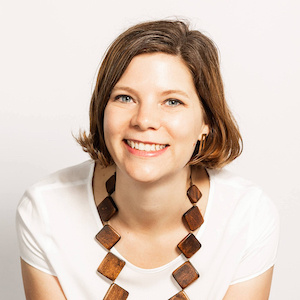
Alex Parker, PhD
Alex combines more than a decade of qualitative and quantitative research experience with lifelong interests and training in design, photography and the visual to produce a variety of products such as data visualisations, opinion pieces, research reports and exhibitions that explore some fundamental problems facing humans and the urban environment today. She loves collaborating with small and large teams to deliver high quality and innovative work that engages diverse audiences. She holds a PhD in urban planning from University of the Witwatersrand and previously worked for the Gauteng City-Region Observatory in Johannesburg, South Africa.
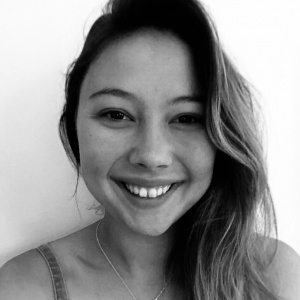
Anna Purdie, MSc
Anna was the Head of Operations for Global Health 50/50, and had been part of the initiative since its launch in 2018 until late 2022. Previously, Anna worked at the UCL Institute for Global Health as part of the UCL Centre for Gender and Global Health working on gender, NCDs and public engagement. She holds an MSc in Anthropology and Development from the London School of Economics and Political Sciences, and an BA in Social Anthropology from Cambridge University.
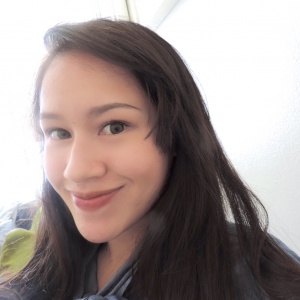
Artricia Rasyid
Artricia is a Senior Policy Analyst to the Chief of Staff for the Governor of Jakarta, where she is a part of the Gubernatorial Delivery Unit for Development Monitoring and Oversight. She dual majored in anthropology and comparative literature at New York University and obtained her Master's in Social Anthropology (Medical track) at the University of Cambridge. She is interested in learning more about quantifying the sociocultural determinants of global health inequalities.

Emma Rhule, PhD
Emma is currently acting lead for the Translation of Evidence to Policy pillar of work at UNU-IIGH. Prior to joining UNU-IIGH, Emma co-led a social innovation consultancy working with UN agencies, NGOs and civil society organisations to develop human-centered solutions to problems ranging from access to education for migrant children to capacity development for NGOs. She has also been involved with the running of a learning centre for refugee children. Before moving to Malaysia, Emma worked at the Wellcome Trust where she had a focus on public and community engagement. She is passionate about designing with, and not for, communities as well as taking an iterative approach to developing, implementing and evaluating programmes. Emma holds a Ph.D. in evolutionary genetics from the University Cambridge. She is also an AMPG-certified Prince2 Project Manager.
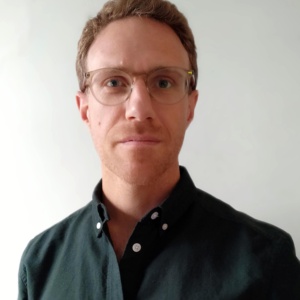
Andrew Riley, MSc
Andrew has had a varied career in education, working in Indonesia, Nepal, Vietnam and the UK as an English language teacher and teacher trainer. Motivated by the conditions of inequality and environmental degradation he witnessed whilst working in Asia, he completed an MSc in Global Health and Development at UCL in order to pursue a career in health research and promotion. His dissertation explored associations between disability status, mental health and women’s experience of violence in India. He also has an MA in Cultural History from the University of Manchester.
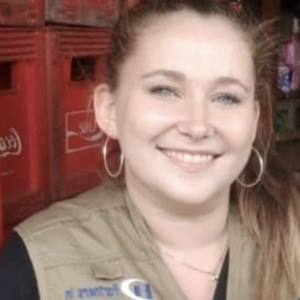
Isabelle Robson, MSc
Izi is a global health researcher based at Partners In Hope, Malawi where she coordinates implementation science trials focused on innovative HIV testing and treatment strategies. She spends extensive time analyzing the gendered response to HIV epidemics globally and locally in Malawi. She has an MSc in International Development from Birkbeck College, University of London where her dissertation focused on women’s political rights in post-conflict developing states.
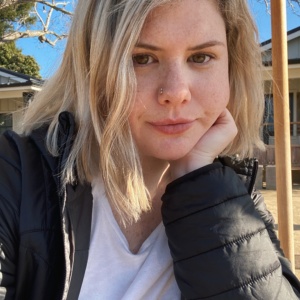
Chelsea Kai Roesch, MA
Chelsea Kai Roesch is a PhD student in Film and Media Studies at University of California, Santa Barbara and a Regents Fellowship recipient—awarded to exceptional doctoral students in the humanities. Her current research focuses on the tech industry, labor, and culture. She holds a Master's in Film and Media Studies from the University of California, Santa Barbara and a B.A. in Media and Cultural Studies from Hampshire College in Amherst, Massachusetts. Prior to graduate school, Chelsea received a two-year teaching fellowship from the Spanish Ministry of Education, Culture and Sport to serve as a North American Language and Cultural Ambassador in Madrid, Spain. After living in Madrid, she consulted for tech startups in Los Angeles and San Francisco on best practices for hiring software engineers. Her current research interests include: labor, casino gambling, Marxism, American nationalism, Internet subcultures, right-wing movements, memes, popular culture, and feminism.
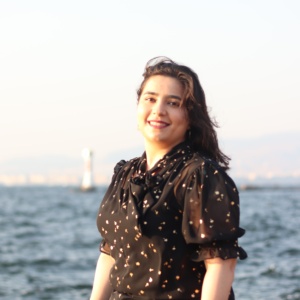
Mehrnoosh Samaei, MPH
Mehrnoosh is a research fellow at the division of Sex and Gender in the Emergency Medicine at Alpert Medical School of Brown University. She is a general physician from Iran and has worked in underserved areas of her country. She pursued an MPH degree from Tehran University of Medical Sciences as she wanted to think broader than one-patient at a time. Mehrnoosh has previously worked on various projects related to women’s health with the International Federation of Medical Students Association, WomenDeliver organization, and UNICEF. Mehrnoosh aspires to be a physician who can provide the best level of health care for all people of all genders. She aims to identify the existing gaps in gender equality, design interventions, and translate research into policies and meaningful outcomes.
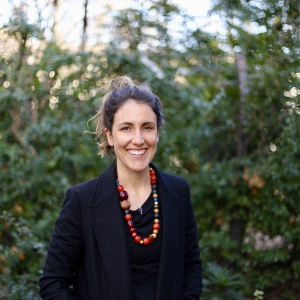
Geordan Shannon, PhD
Dr Geordan Shannon is a feminist, medical doctor, and global health academic. She is based at the UCL Institute for Global Health, Centre for Gender and Global Health and Centre for Global Health Economics, where she leads research in health systems innovation, gender-based violence prevention, participatory research, public engagement, and health economics. She has worked in various settings, including remote Indigenous Australia, post-Tsunami Sri Lanka, the Peruvian Amazon, Western Kenya and rural Sierra Leone. Geordan is the co-founder of Global Health Disrupted (www.globalhealthdisrupted.org), a grassroots network supporting creative approaches to improving health and strengthening communities around the world. Geordan is also co-founder of STEMA, a research initiative using a systems and design thinking approach to address broader systems failures in achieving human health and wellbeing in low resource settings worldwide. She was recently awarded Young Australian of the Year in the UK in recognition of her contributions to global health.
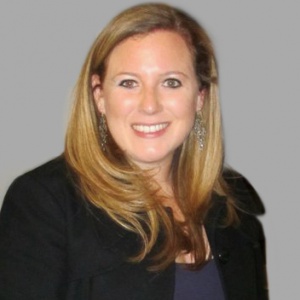
Ashley Sheffel, DrPH
https://www.linkedin.com/in/ashley-sheffel-2aa1346b/

Metti Temesgen
Metti Temesgen is a junior at the University of North Texas studying Political Science and Public Health. She’s been working with grassroots movements like Setaweet Movement and Research PLC in Addis Ababa, Ethiopia focusing on women empowerment and women’s rights advocacy. She also has experience in sexual and reproductive health rights advocacy and has been working with LGBTQ+ health advocacy organizations to promote the health of marginalized communities. She’s currently working as a Peer Health Educator at the Meadows Center for Health Resources designing health programs focusing on women’s health and reproductive justice. She’s also a student leader for Texas Rising doing grassroots and digital organizing for reproductive rights, health and justice.
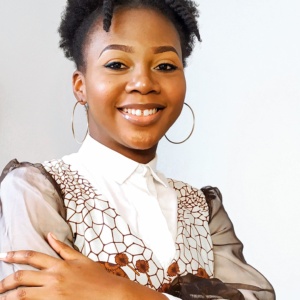
Treasure Udechukwu
Treasure is a recent graduate from the EHESP French School of Public Health with a concentration in Health Policy and Management, and has experience in clinical and public health research. Her research interests are focused on areas of global health, health systems strengthening, health policy, and social determinants of health such as poverty, gender, and access to care. She has previously worked on health policy and health system issues in Bangladesh at the French Institute for Sustainable Development, a research institute committed to the achievement of the Sustainable Development Goals. Treasure aims to contribute to the development of evidence-based programs and policies in global health.
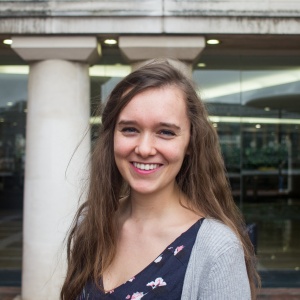
Nina van der Mark, MSc
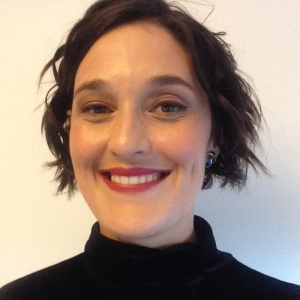
Kate Williams
Kate is a Strategic Projects Advisor at Marie Stopes International in London where she supports the implementation of a multi-country project aimed at improving women's access to family planning and safe abortion services. Kate has a background in law and international public health and has previously worked on sexual and reproductive health and rights in China and Timor-Leste.
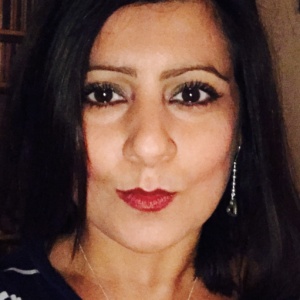
Samina Yaqub, BA (Hons)
Samina is a highly skilled and passionate charity professional with over 20 years of experience in service delivery, operations management, and project leadership. With a deep commitment to gender justice and social justice, Samina is driven to make a positive impact in the world. She is a strategic and proactive leader who fosters a culture of teamwork and continuous improvement. She is dedicated to driving organisational excellence and enhancing productivity and quality. Her extensive background includes managing various specialist teams through motivational line management, and she has a wealth of experience in service delivery and operations. She is a proven expert in leading successful system implementations, managing regulatory compliance, and developing processes and procedures that ensure optimal service delivery.
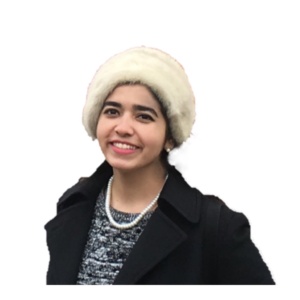
Dina Youssef, MPH
Dina Youssef, from Egypt, has a bachelor's degree in pharmaceutical sciences from Misr International University in Cairo, and a master's degree in public health from London School of Hygiene and Tropical Medicine, where she was awarded a full scholarship. She is currently studying towards a master's degree and PhD in Epidemiology concurrently at Utrecht University in Netherlands, where she has been awarded a global health support fellowship. She has worked for many years at international companies in USA as a public health research assistant on different projects including digital health, communicable diseases and non-communicable diseases. Dina has also worked as a systematic reviewer consultant with World Health Organization on antimicrobial resistance projects. Moreover, she worked as a systematic reviewer consultant at Robert Koch Institute on a project about training programs and initiatives for public health emergency workforce. Through her current and previous job roles, she has gained a lot of skills and experiences in writing policy briefs, conducting statistical analysis using STATA software, writing grant proposal and conducting systematic reviews. In addition, she has experience in conducting qualitative research, surveys, landscape assessments and reviewing research drafts.
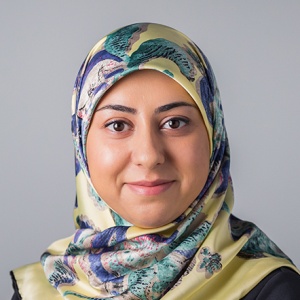
Zahra Zeinali, MPH
Zahra Zeinali is a physician from Iran, and has pursued an MPH degree in International Health at Johns Hopkins Bloomberg School of Public Health. Zahra is currently working with Global Health 50/50 as a researcher, is a Fellow with the Rockefeller Foundation-Boston University 3-D Commission on Health Determinants, Data and Decision Making, and chairs the Intersectionality Working Group of the Gender Equity Hub of the WHO’s Global Health Workforce Network.
Zahra has previously worked as a researcher with Johns Hopkins University on Gender and Intersectionality; as a policy officer with EAT Foundation, focusing on food systems policy at the intersection of human and planet health; with the WHO and Jhpiego on human resources for health policies; and with the International Federation of Medical Students’ Associations and the Iranian Medical Students Association.
Her research is focused on intersectionality as a framework for public health research, women’s leadership in health systems, and gender as a determinant of health.
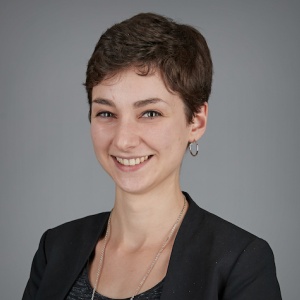
Laure-Anais Zultak, MSc
Laure has been working in global health policy and advocacy for several years and currently works as a political consultant for the healthcare sector. She previously worked on various projects at Chatham House's Centre on Global Health Security, think tank Polygeia and sexual health charity MEDFASH. Laure holds a BA in Chinese studies from the University of Oxford and an MSc Population and Development from the London School of Economics.
The Global Health 50/50 Advisory Council is comprised of leaders in the fields of gender, global health and development, who are passionate about advancing gender equality and better health for all. Serving as ambassadors in their personal and voluntary capacity, they support the work of the initiative, amplify its findings and guide the strategic direction of GH5050. We strive for diverse intersectional representation on our Advisory Council and balance, including in terms of expertise, age, gender and geography.
Our Advisory Council
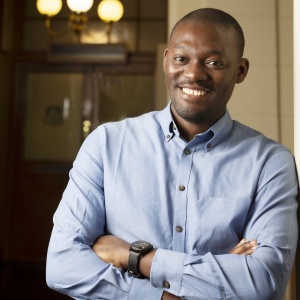
Seye Abimbola
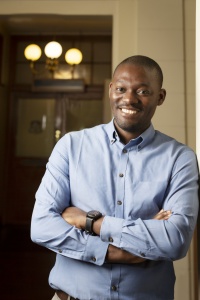
Dr Seye Abimbola is a health systems researcher. He has worked as a health care practitioner and/or researcher in Nigeria where he completed his medical training at Obafemi Awolowo University, Ile-Ife; in Australia where completed an MPhil in Public Health and PhD in health systems research at the University of Sydney, and in the United Kingdom where he was a Sidney Sax Overseas Early Career Fellow at the University of Oxford, funded by the National Health and Medical Research Council of Australia. From 2009-10, Dr Abimbola was a Rotary Foundation Ambassadorial Scholar at the George Institute for Global Health in Australia, and from 2010-13 he was a research fellow at the National Primary Health Care Development Agency in Nigeria. Dr Abimbola studies community engagement in governance, decentralised governance and the role of governance in the adoption and scale up of health system innovations. He is a senior lecturer in global health at the University of Sydney, and the editor in chief of BMJ Global Health.
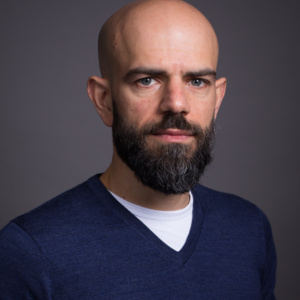
Tammam Aloudat
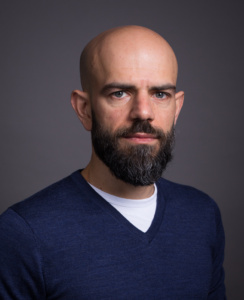
Dr Tammam Aloudat is a Syrian physician and humanitarian worker. He was formerly President of Médecins Sans Frontières – Doctors without Borders (MSF) Netherlands and the chair of the MSF Operational Centre Amsterdam which provides humanitarian medical assistance to populations affected by conflicts and crises in over 30 countries. He has worked for the International Federation of Red Cross and Red Crescent Societies and MSF on conflicts, natural disasters, forced displacement, and disease outbreaks both directly in field projects and in organizational headquarters. He also holds the position of Section Editor for Humanitarian Health at the PLOS Global Public Health journal and was previously the managing director of the Global Health Centre in the Geneva Graduate Institute for International and Development Studies.
He has worked on a range of issues, including medical standards and quality of care, humanitarian ethics, health justice, decoloniality in humanitarianism and health governance, palliative care, and access to medicines.
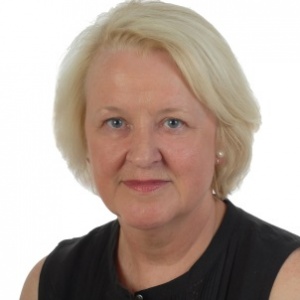
Jan Beagle
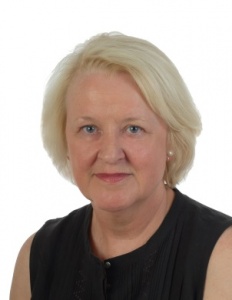
Jan Beagle is a diplomat from New Zealand. Formerly, she served as the Under-Secretary-General for Management at the United Nations, and as Deputy Executive Director of UNAIDS. She has more than 30 years of experience in diplomatic, political, strategic, management and intergovernmental and interagency affairs, and has made important contributions in leading and advancing change management initiatives in the Secretariat and at the level of the United Nations system. Ms Beagle also serves as the Chair of the High Level Committee on Management.
With a focus across the development, health, gender, human rights, peace and security and humanitarian spheres, Ms Beagle has consistently worked across sectors, promoting interlinkages for joined up strategic action. Ms Beagle is a leading advocate within the UN system for gender equality and gender parity. At UNAIDS she spearheaded the development and implementation of a Gender Action Plan which serves as an accountability platform to provide concrete measures to increase gender parity in UNAIDS, while forming the basis from which to strengthen organizational culture towards gender equality for all staff. She was one of the early appointed International Gender Champions–a leadership network that brings together senior female and male decision makers to break down gender barriers and served as a Co-Chair of the Champions Working Group on Change Management.
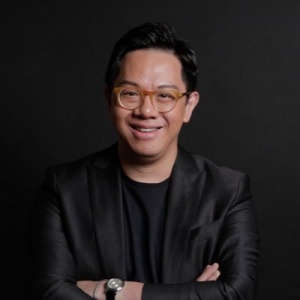
James Chau

James Chau is a British-Chinese news anchor. He was a guest presenter on the award-winning show Horizons on BBC World News, and is now a Special Contributor to CCTV International. His programs are watched by over 100 million people in China and globally.
He has earned a special reputation for his in-depth interviews with world leaders in politics and science. In December 2016, he spoke with Ban Ki-moon in his last conversation as United Nations Secretary-General. Among others, he has interviewed Nobel laureates Kofi Annan, Aung Sang Suu Kyi, Muhammad Yunus and Françoise Barré-Sinoussi – and also Winnie Mandela, Joko Widodo, Robert Mugabe, Tung Chee-hwa, Paul Kagame, Arianna Huffington, Elton John and an exclusive with China’s First Lady Peng Liyuan.
He is a frequent moderator at major events: the UN High-Level Meeting on Antimicrobial Resistance; the G20 Summit with Jack Ma and Justin Trudeau; the Global Partners Meeting on Neglected Tropical Diseases with donors including Bill Gates; and a conversation in Los Angeles on the future of global health with Laura Bush and Charlize Theron.
In 2009, James was named UNAIDS Goodwill Ambassador, and in 2016 he was appointed WHO Goodwill Ambassador for Sustainable Development Goals and Health. Born in London, he studied piano at the Royal Academy of Music, and graduated from Cambridge University where the John CB Chau Prize in Engineering is named for his father. He lives in Beijing.
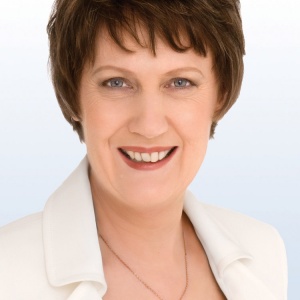
Helen Clark
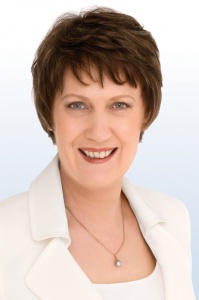
Helen Clark, ranked by Forbes as one of the most powerful women in the world, is a New Zealand politician who served as the 37th Prime Minister of New Zealand from 1999 to 2008, and was the Administrator of the United Nations Development Programme from 2009 to 2017 where she was the highest ranking woman in the United Nations.
Throughout her exceptional career Helen Clark has continued to achieve many firsts, including becoming the first elected woman Prime Minister of New Zealand and the first woman head of UNDP. As Prime Minister, she served for three consecutive terms. During her tenure at UNDP, the ratio of female to male staff reached 50 per cent, including at the most senior levels. She is a member of the Council of Women World Leaders.
Helen Clark is a passionate communicator, and engages widely with the public, using social media as a tool to advocate on important global issues, and was consistently ranked as the top communicator at the UN for her continual interaction with broad audiences. A new film, ‘My Year with Helen’, follows her attempt to become the first female Secretary-General of the United Nations and her continued pursuit of breaking glass ceilings.
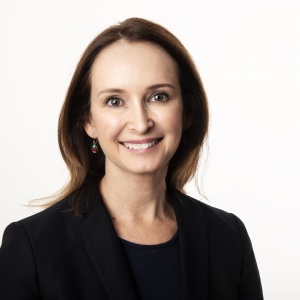
Jocalyn Clark
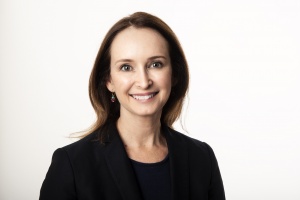
Dr Jocalyn Clark is Canadian public health scientist and professional journal editor, currently working as International Editor at The BMJ in London UK. She has experience working in numerous organisations including as Executive Editor at The Lancet, Executive Editor at icddr,b, an international health research organisation located in Dhaka, Bangladesh, Senior Editor at PLOS Medicine, and Assistant Editor at The BMJ. She is also an adjunct Assistant Professor of medicine at the University of Toronto and former consultant to Grand Challenges Canada. She holds a PhD in Public Health Sciences, for which she was a doctoral fellow of the Canadian Institutes of Health Research, studying the medicalisation of sexual assault and gender-equity in public health issues. Her recent Rockefeller Foundation Bellagio residency produced a 5-part series critiquing The Medicalisation of Global Health.
Jocalyn is dedicated to building capacity in research, writing, and knowledge translation among developing country investigators and institutions, and is a recognised leader in the mechanics of writing, writing for publication, publication ethics, social determinants of health, and global/women’s health. She has over 125 publications in peer-reviewed medical journals.
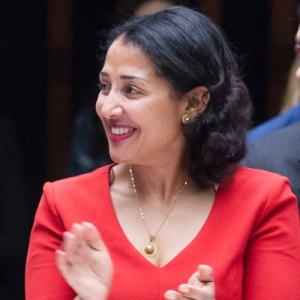
Senait Fisseha

Reproductive endocrinologist and infertility specialist Senait Fisseha is a global leader in expanding access to reproductive health services, especially in developing countries. Dr. Fisseha chaired Dr. Tedros’ successful campaign in 2016-2017 as he was elected the first ever African Director-General of the World Health Organization and led his transition team. She guided the recruitment of the senior leadership team that for the first time represented top talent from 14 countries, including all WHO regions, and is 60% women.
Born in Ethiopia, Dr. Fisseha earned an undergraduate degree from Rosary College in River Forest, Illinois, M.D. and J.D. degrees from Southern Illinois University, and a certificate in International Human Rights and Comparative Law from the University of Oxford. She completed her internship (2000) and residency (2003) in obstetrics and gynecology and fellowship training in reproductive endocrinology and infertility (2006) at the University of Michigan. As adjunct professor of obstetrics and gynecology at U-M, Dr. Fisseha advocates for training and capacity building in contraception and reproductive health services globally. Previously, Dr. Fisseha was medical director of Michigan’s Center for Reproductive Medicine and founding executive director of its Center for International Reproductive Health Training. She helped U-M forge strong partnerships with Ethiopia’s Ministry of Health and the St. Paul Hospital Millennium Medical College in Addis Ababa, and was honored by the Ethiopian Ministry of Health in 2013 for her contributions to the health sector. In 2016, the U-M Medical Center Alumni Society presented her its Early Distinguished Career Achievement Award.
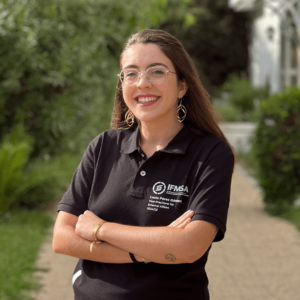
Lucía Pérez Gómez

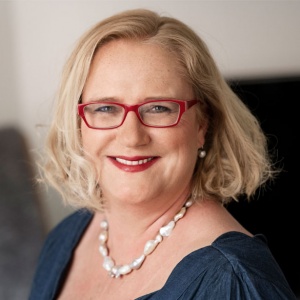
Katja Iversen
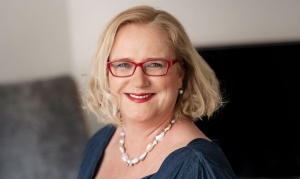
Katja Iversen is an internationally recognised expert on development, advocacy and communications, Katja has over 20 years of experience working in NGOs, United Nations agencies and corporations. She is a member of President Macron’s G7 Gender Equality Advisory Council, the Unilever Sustainability Advisory Council, and the MIT Women & Technology Solve Leadership Group. She is the former President/CEO of Women Deliver. Her unwavering commitment to the principles of equality, justice and human rights was celebrated in 2018 when she was named Dane of the Year.
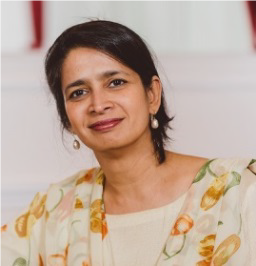
Sharmila Mhatre

Sharmila Mhatre’s expertise in health and economic justice research and policies in low- and middle-income countries is founded on over 20 years of experience leading, designing and managing multi-sectoral investments with government, donor, and civil society collaborators in sub-Saharan Africa, South Asia, Eastern Europe, and Latin America. From 2016 to 2022 she served as the deputy director and then the acting director of the former Public Health Program at the Open Society Foundations.
Prior to joining Open Society, Mhatre worked at Canada’s International Development Research Centre for over a decade where she headed the Governance for Equity in Health Systems program (2010-2016). She is a board member of the British Medical Journal Global Health. Mhatre holds a PhD in health services research from the University of Toronto (1994).
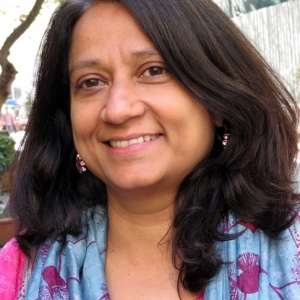
Geeta Misra
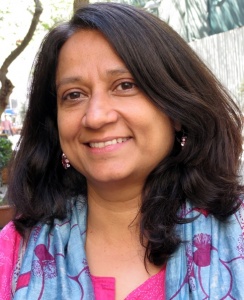
Geetanjali Misra is the Co-Founder and Executive Director of CREA. Geeta, a seasoned activist and grant-maker, is a champion of sexual and reproductive health and rights, gender equality and ending violence against women. Before founding CREA, she was Program Officer, Sexuality and Reproductive Health, for the Ford Foundation in New Delhi where she supported non-governmental organizations in India, Nepal, and Sri Lanka working on sexual and reproductive health and rights. She also co-founded SAKHI for South Asian Women in New York in 1989, a non-profit organization, committed to ending violence against women of South Asian origin.
Geeta is a Board Member of Reproductive Health Matters (UK); and a Member of the Advisory Board of FHI360 (US). She was President of the Board of the Association for Women’s Rights in Development (AWID) from 2006–2008. She co-edited Sexuality, Gender, and Rights: Exploring Theory and Practice in South and Southeast Asia.
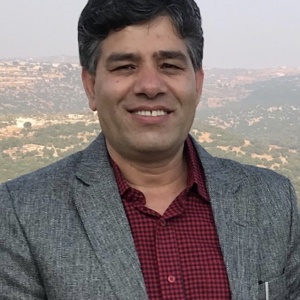
Mahesh Puri
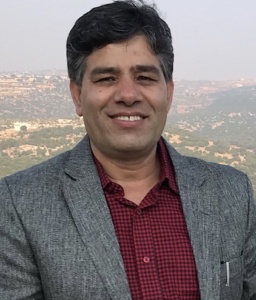
Dr. Mahesh Puri is Co-Director of the Centre for Research on Environment Health and Population Activities (CREHPA) – a national non-profit research organization based in Kathmandu, Nepal. Dr. Puri has been actively involved in the areas of reproductive and sexual health and rights including gender-based violence, menstrual justice and men’s health related research studies and programs for more than 20 years in Nepal and the Asia. His areas of expertise are on mixing of qualitative and quantitative research methods in researching sensitive topics of reproductive and sexual health and rights. His research focuses on menstrual justice, unintended pregnancy and abortion, family planning, maternal and child health, adolescent health, gender-based violence, gender and men’s health. He has published extensively on these issues in international journals. Dr Puri led Nepal team for ever conducted study the Nepal 50/50 on gender (in)equality in the health sector in Nepal. He sits on various national and international advisory committees. Dr Puri has extensive experiences to engage concerned national level stakeholders in the research process and results uptake.
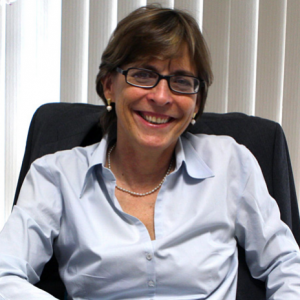
Mariângela Batista Galvão Simão
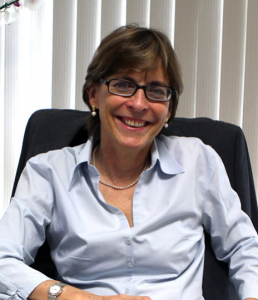
Dr Mariângela Batista Galvão Simão from Brazil has been appointed Assistant Director-General for Drug Access, Vaccines and Pharmaceuticals. Most recently, she was Director of Community Support, Social Justice and Inclusion at UNAIDS. In addition to her work at UNAIDS, she brings more than 30 years of experience working in the Brazilian public health system and has played an active role in enhancing access and decentralizing health services in the country.
Between 2006 and 2010, she served as Director of the National STD/AIDS and Viral Hepatitis Department in the Brazilian Ministry of Health, where she led successful price negotiations with pharmaceutical companies to lower the price of HIV medication. During this time, she also represented the Brazilian Ministry of Health in the negotiations that led to the constitution of UNITAID in 2006, including its governing body, where she served as a board member until 2008. She was trained as a paediatrician in Brazil and holds an MSc degree in public health from University of London, United Kingdom.
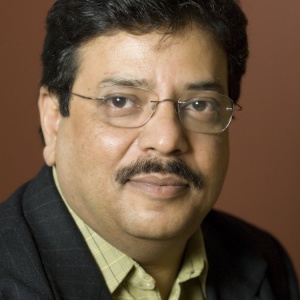
Ravi Verma
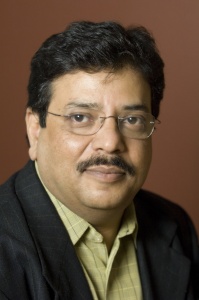
Ravi Verma is Regional Director for the International Centre for Research on Women’s (ICRW) Asia Regional Office in New Delhi, India. Over the past three decades he has worked on issues of men, masculinities, male sexual health and gender equality as they relate to violence against women, reproductive health including family planning and HIV and AIDS in India and the Asia region. He has published extensively on these issues in both Indian and international journals. Ravi is also serving as a Chair of the Indian National Technical Resource Group on Stigma and Vice Chair of the Indian National AIDS Control, Ethics Review Committee, and sits on advisory committees on the government’s response to child marriage, gender-based violence and adolescent health. He has served as a member of High Level Committee on the Status of Women (HLCSW), Government of India and the Rights & Empowerment working group of the FP2020 Initiative.
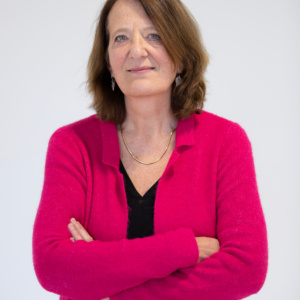
Marijke Wijnroks
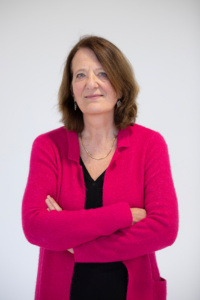
Marijke Wijnroks has served as Head of the Strategy, Investment and Impact Division since January 2023. She served as Chief of Staff at the Global Fund from 2013 to 2022. During that time, she also served as interim Executive Director from June 2017 to February 2018, as interim Head of Human Resources from September 2021 to February 2022, and interim Head of the Strategy, Investment and Impact Division from April to December 2022.
As head of the Strategy, Investment and Impact Division, Wijnroks oversees four departments: Access to Funding, Health Finance, Community, Rights and Gender, and Technical Assistance and Partnerships. She also oversees the Catalytic Investments Office, and acts as as Chair of the Grants Approval Committee.
With over 30 years of experience in global health and development, Wijnroks began her career as a field doctor with Médecins Sans Frontières in Sudan. She spent five years in El Salvador as a technical adviser developing health systems for the Pan American Health Organization (PAHO/WHO), and two years as a project manager with Helen Keller International in Bangladesh focusing on maternal and child health.
Wijnroks has served as ambassador for HIV and AIDS, and deputy director of the social development department, both with the Dutch Ministry of Foreign Affairs, overseeing policy and strategy development in areas related to HIV and AIDS, sexual and reproductive health and rights, gender, education and civil society. Before joining the Global Fund, Wijnroks served one term on the Global Fund Board as a Board Member and two terms as an alternate Board Member, as well as for two years as vice–chair of the Board’s Ethics Committee.
Wijnroks earned a medical degree from Maastricht University and a degree in tropical health and medicine from the Institute for Tropical Medicine in Antwerp.
Our Trustees are a group of individuals from diverse disciplinary backgrounds who govern the Global Health 50/50 Charity (charity number 1194015).
Our Trustees
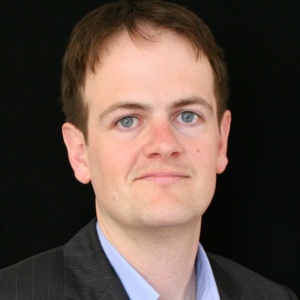
Peter Cafferkey
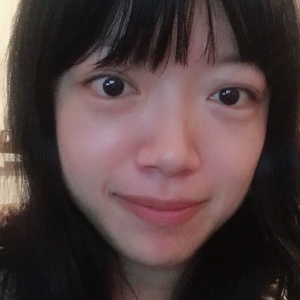
Tiantian Chen, PhD
Tiantian is a director of an urban regeneration development company which brings underutilized brownfield land back into affordable housing. In the meantime, she is a researcher at ReproSoc at University of Cambridge, focusing on human-assisted reproduction technology policies in China. Tiantian holds a PhD degree in sociology at University of Cambridge.

Paul Sansome, MA
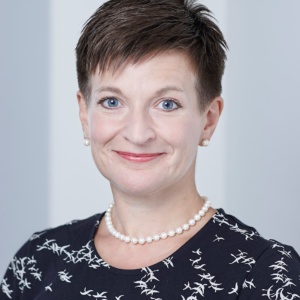
Lorna Skinner
Lorna is a barrister based at Matrix Chambers in Gray’s Inn, London. She was appointed Queen’s Counsel in 2021. Her principal area of specialism is media and information law. Lorna has a longstanding interest in women’s health and justice issues. She is a trustee of a charity that provides breastfeeding help, support and information for families, and chaired the Maternity Services Liaison Committee at her local hospital for two years. In her professional role, Lorna regularly provides pro bono advice to the Centre for Women’s Justice, a charitable organisation which brings together lawyers and other experts in the field of violence against women with those on the frontline in order to bring strategic law challenges and ensure access to justice. Lorna also sits as an Assistant Coroner, as an Arbitrator for the Independent Press Standards Organisation, and has sat on a Fitness to Practice Medicine Appeal Panel at Imperial College London.

